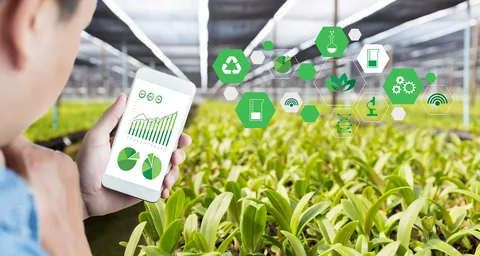In recent years, agriculture has undergone a significant transformation thanks to technology. Farmers are now leveraging digital tools for smart agriculture farm management to increase efficiency, reduce costs, and improve crop yields. By integrating digital solutions into traditional farming practices, the agricultural sector is becoming more data-driven and sustainable.
The Rise of Smart Farming
Smart farming involves the use of advanced technologies to monitor, analyze, and optimize farm operations. These technologies include sensors, drones, GPS systems, and farm management software. By adopting digital tools for smarter farm management, farmers can make informed decisions that improve productivity and minimize resource wastage.
Key Digital Tools for Smarter Farm Management
1. Farm Management Software
Farm management software allows farmers to track their crops, livestock, and equipment in real-time. It provides insights into planting schedules, irrigation needs, and pest control measures, helping farmers plan more effectively.
2. Precision Agriculture Tools
Precision agriculture uses data from sensors and satellite imagery to optimize planting, fertilization, and irrigation. These digital tools for smarter farm management help farmers apply the right inputs at the right time, leading to higher yields and lower costs.
3. Drones and Remote Sensing
Drones equipped with cameras and sensors can monitor crop health and detect issues such as disease or water stress early. This enables timely intervention, saving both time and money.
4. Mobile Applications
Mobile apps provide farmers with real-time weather forecasts, market prices, and expert advice. These apps empower farmers to make quick, informed decisions and improve farm productivity.
Benefits of Using Digital Tools in Agriculture
- Increased Efficiency: Automating farm tasks and monitoring resources reduces labor and operational costs.
- Better Decision-Making: Data-driven insights allow farmers to make precise decisions about crop management.
- Sustainability: Optimizing resource use helps protect the environment and ensures long-term farm viability.
- Improved Profitability: Higher yields and better resource management result in increased profitability for farmers.
Conclusion
The adoption of digital tools for smarter farm management is revolutionizing the agricultural sector. From precision agriculture to farm management software and mobile apps, these technologies are enabling farmers to optimize operations, conserve resources, and boost productivity. As technology continues to evolve, the future of farming looks smarter, more sustainable, and increasingly data-driven.

